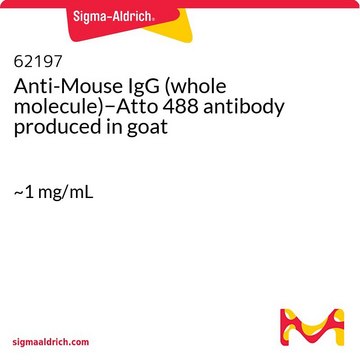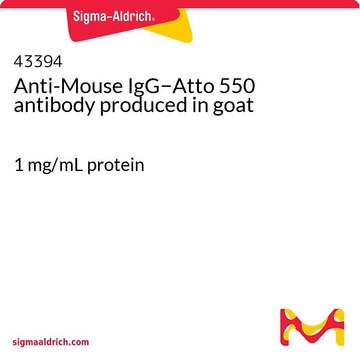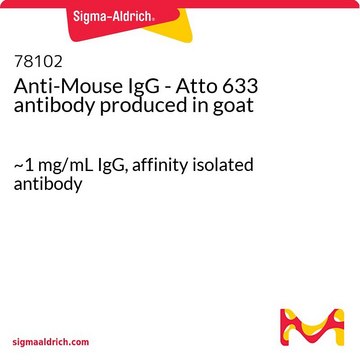41176
Anti-Rabbit IgG - Atto 633 antibody produced in goat
1 mg/mL IgG
Synonym(s):
Atto 633 [goat-Anti-rabbit IgG]
About This Item
Recommended Products
biological source
goat
Quality Level
conjugate
Atto 633 conjugate
antibody form
affinity isolated antibody
antibody product type
secondary antibodies
clone
polyclonal
contains
50% glycerol as stabilizer
species reactivity
rabbit
concentration
1 mg/mL IgG
technique(s)
immunohistochemistry: 1:200
fluorescence
λex 636 nm; λem 650 nm in PBS
storage temp.
−20°C
target post-translational modification
unmodified
General description
Immunogen
Application
Analysis Note
Legal Information
Disclaimer
Not finding the right product?
Try our Product Selector Tool.
related product
Storage Class Code
10 - Combustible liquids
WGK
WGK 3
Flash Point(F)
Not applicable
Flash Point(C)
Not applicable
Personal Protective Equipment
Certificates of Analysis (COA)
Search for Certificates of Analysis (COA) by entering the products Lot/Batch Number. Lot and Batch Numbers can be found on a product’s label following the words ‘Lot’ or ‘Batch’.
Already Own This Product?
Find documentation for the products that you have recently purchased in the Document Library.
Articles
Immunoblotting (Western blot transfer) is a common technique in modern proteomics research.
Our team of scientists has experience in all areas of research including Life Science, Material Science, Chemical Synthesis, Chromatography, Analytical and many others.
Contact Technical Service








